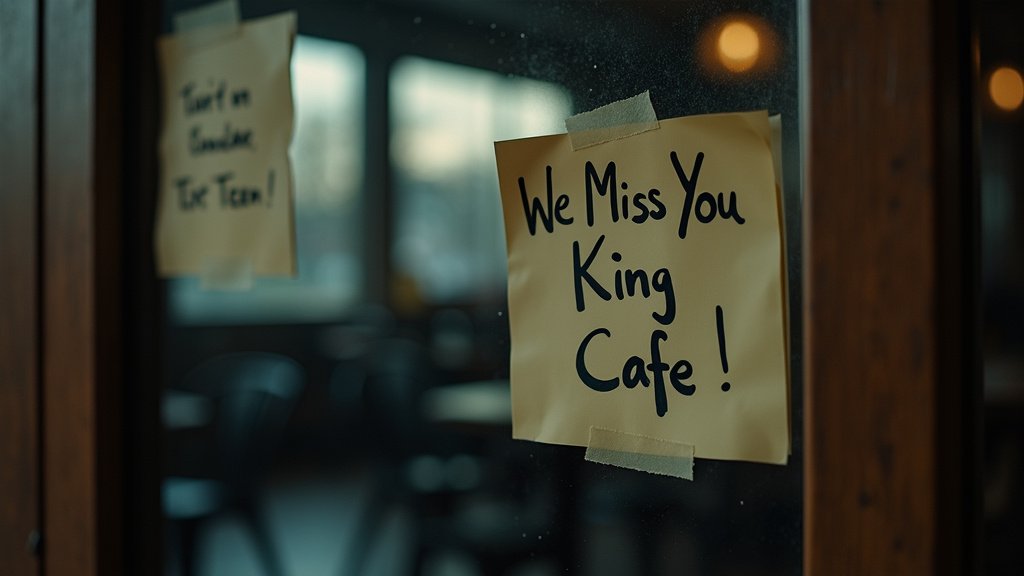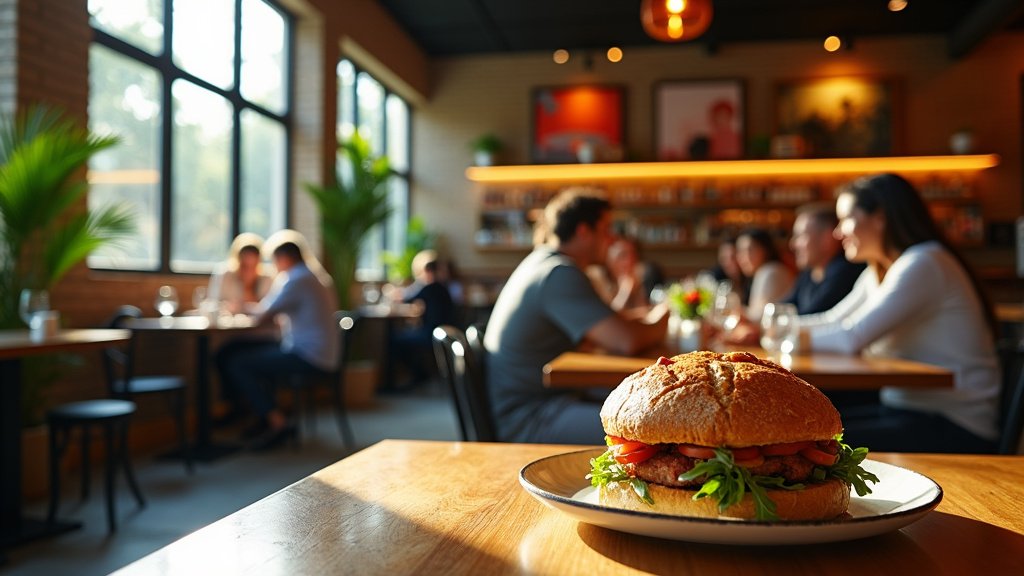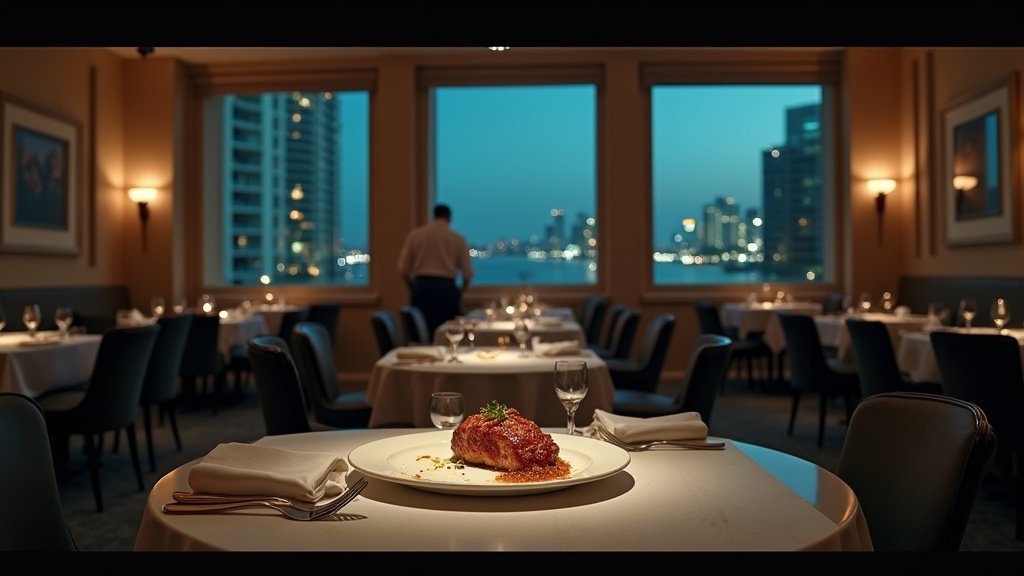The King Cafe, a long-standing dining establishment in the basement of Miami University’s King Library, has permanently closed its doors after 19 years of operation. The closure, announced in late May and communicated to students via an article titled “Updates and upgrades at the Miami University Library” on September 3rd, marks the end of an era for many students who frequented the popular spot. Miami Dining Services cited a “significant decrease in business volume over the past several years” as the primary reason for the decision, attributing it to changing dining habits and strategic shifts within the university’s food service operations.
Signage at the cafe confirms its permanent closure, with some students expressing their disappointment and nostalgia for the establishment, with notes like “I miss you King Cafe” posted on the official closure signs. While the physical space will no longer serve as a cafe, tables and whiteboards will remain available for student use.
A Decade and a Half of Service in King Library
King Cafe first opened its doors in 2006, coinciding with a significant shift in university library policies that allowed food and beverages for the first time. This opening transformed the King Library, previously known as “the Libe” and then “Club King” for its 24/7 hours, into a more inviting and accommodating space for students. The cafe became a popular spot, offering a convenient place for students to grab a meal or coffee while studying or socializing, contributing to the library’s role as a central hub for academic life and community building on the Miami University campus. The cafe’s presence aimed to enhance the student experience within the library, providing a much-needed amenity.
Shifting Dining Habits and Strategic Realignments
The closure of King Cafe is symptomatic of broader changes occurring within campus dining services across many universities. Geno Svec, senior director of dining services at Miami University, explained that the decision was a business one, driven by factors such as operational efficiency, customer satisfaction, and strategic management. This reflects a larger trend where universities are re-evaluating their dining options to align with evolving student preferences and operational realities.
Miami Dining Services has been undergoing strategic shifts, including changes in management providers. The university transitioned from Aramark to Chartwells Higher Education for its campus dining services in May 2024, after a prior, shorter-lived contract with Aramark that began in 2022. These transitions often involve a review of all campus dining locations to optimize offerings and meet student demand. While other campus cafes like Dividends and Pulse Cafe continue to serve a consistent number of guests, King Cafe’s business volume declined significantly.
Evolving Campus Dining Landscape at Miami University
Miami University, like many institutions, is continuously adapting its dining landscape to meet contemporary student needs and preferences. Recent updates to Miami’s dining services showcase a trend toward diverse culinary experiences, national brand integration, and enhanced convenience. For instance, the university has welcomed popular national brands like Chick-fil-A to the Armstrong Student Center, responding to extensive student feedback and demand.
Further innovations include the introduction of new dining concepts and an increased focus on dietary needs, such as the “Delicious Without” stations offering meals free from the top nine allergens in Maplestreet and Western dining commons. Additionally, concepts like Ciao Bella (Italian cuisine) and Athenian Grill (Greek and Mediterranean) are being introduced, alongside grab-and-go options and meal kits, reflecting a move towards more varied and accessible food services. The university is also exploring technology like locker systems and delivery robots to streamline the dining process. These developments suggest a strategic effort by Miami Dining Services to innovate and stay relevant in a competitive campus dining market.
Student Reaction and Future of the Space
The closure has garnered reactions from students, with some expressing sadness and nostalgia for King Cafe. However, for others, the impact is minimal as they may not have frequented the cafe regularly. The university libraries are now considering how to repurpose the vacated space within King Library. As stated by Katelyn DeGregorio, strategic communications coordinator for Miami University Libraries, “we are already planning for the opportunity this new vacancy provides us”. The library system is committed to transforming the space to better serve students, aligning with the broader trend of academic libraries evolving into multi-functional student hubs.
The closure of King Cafe after nearly two decades signifies a turning point, reflecting the dynamic nature of student preferences, operational challenges, and strategic planning within higher education dining services. While one chapter closes, Miami University continues to invest in its campus dining future, aiming to provide varied, convenient, and satisfying options for its student body.





